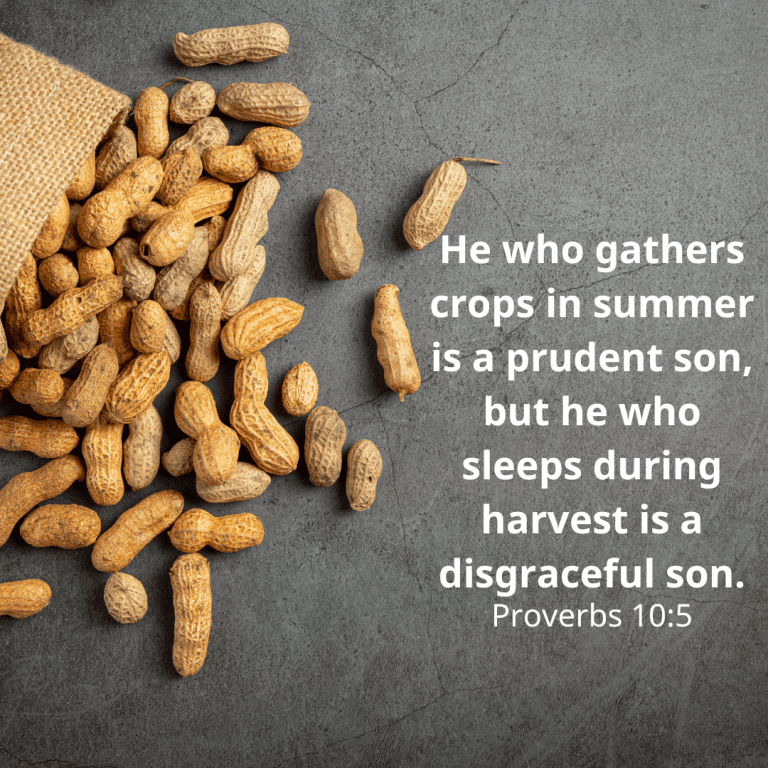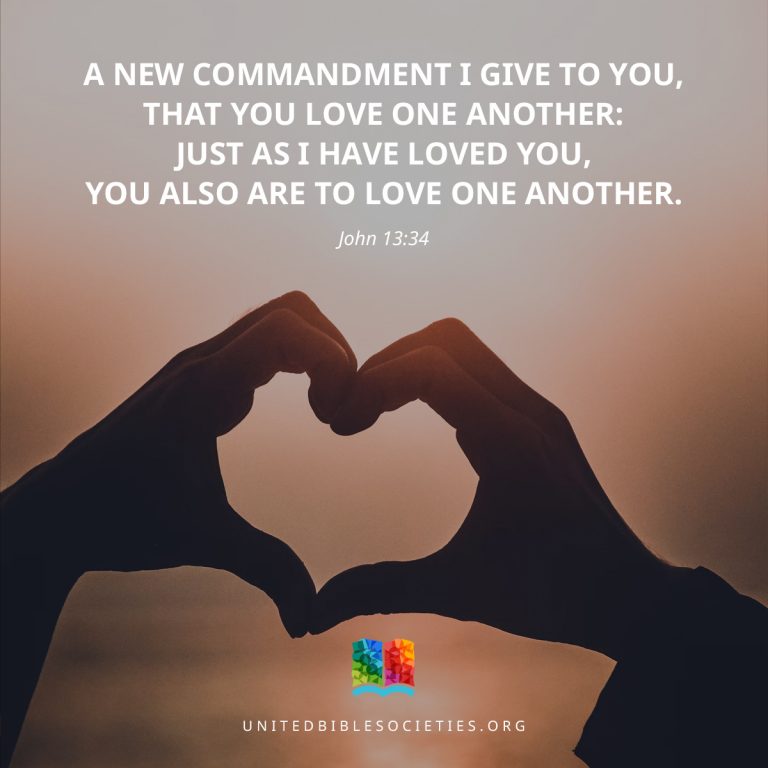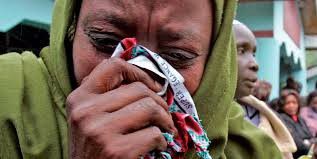aza 4
Yecu-ŋa kwaw gi kwedi zaamraŋw
1 mezi Kweleny Yecu elŋece ŋeḏi lifarzi ŋimer ŋi neŋne ŋiɽaŋali, ŋarir ŋi ŋwu: Yecu kweḏi lumaṯi luru, na kweṯi zi baptazi luru eḏi yuhanna la, 2 (lakin eti zi Yecu ere baptazi ŋundu mac, na limeḏgen orɔ leri zi baptazi,) 3 nuŋw ṯazi yahuḏiiyaŋw lu, nuŋw diɽi eḏaɽiḏa jaliil. 4 nuŋw ta pa ele zaamra ŋgi. 5 ŋwu ta, nuŋw upaḏi kayin weḏi zaamraŋw weni zukaar, wunani gwu ṯuruny ketok tinḏeḏa yaguub tiɽŋeyin teni yuzif. 6 na ṯil ṯeḏi yaguub nani kinaŋw, na kaka ma gwu Yecu ajili nana ki ṯay la, nuŋw ta nanalu kineni pet ki ṯil la. na kaŋwun-na kwiri, kaka zaa wri-kwuɽen. 7 nuŋw ila kwete kwir kwaw kweḏi zaamraŋw eḏaŋɽi. na Yecu eca ŋwu: inḏeḏenyji, nyji ii; 8 kaka ma gwu limeḏgen ele ki meḏiina-na eḏi liṯa eḏneya. 9 na kwaw kwir zaamri eca ŋwu: aḏa kwiri mindaŋ uṯizenyi lu ŋaw ŋi ŋeḏi zi ii, ŋa kwiri yahuuḏi, nenyi ma orɔ nyi zaamri? kaka orɔ gwu yahuuḏ-ŋa lizaamri li ṯuwən. 10 na Yecu eŋnici, nuŋw eca ŋwu: eŋgelŋe haḏiya weḏi Allah, eŋgelŋe ŋgwa kwuṯizeŋa gi lu eḏi zi inḏeḏa, eḏi zi ii, eŋgi uṯize ŋunduŋwu lu, eŋguŋw ma inḏeḏa ŋaŋwu ŋaw ŋeṯinḏeḏa ŋimiiḏa. 11 na kwaw eca ŋwu: kwor kwalu, a kwafa ḏelwa ṯaka, olu ma ṯil-na dudul; ta ma afa ŋaw ŋa ṯaka, ŋeṯinḏeḏa ŋimiiḏa? 12 a kwuṯemḏi ṯernyeriŋw ṯeni yaguub, ṯinḏeḏenyji ṯil kḏu, ṯeṯir gwu ii ŋundu-ŋa nyiɽŋeyin nyi, ŋirel ŋi-na ŋuŋun rac a? 13 na Yecu enŋici, nuŋw eca ŋwu: kwere kweri ii ŋaw ŋu, a owḏa ye kwokwony, 14 lakin kwere nyiḏak kwumɔ ii ŋaw ŋenyji inḏeḏa, a owḏa ere ye kwokwony ḏuṯ, lakin ŋaw ŋenyji inḏeḏa, er orɔ duŋgwun-na ṯuwa ṯeḏi ŋaw ŋeṯirṯeḏi eḏinḏeḏa ŋimiiḏa ŋiaŋ, ŋeṯinanniḏa dɔk. 15 na kwaw eca ŋwu: kwor kwalu, inḏeḏenyi ŋaw ŋu, ŋiti ŋi nyi iini owḏa mac, enyere onda kunuŋ tɔk mac ki ṯay ṯolana eḏi gwu aŋindi.




16 na Yecu eca ŋwu: inḏi, ornuṯa kwulelu, a gi oɽa kunuŋ. 17 na kwaw eŋnici, nuŋw eca ŋwu: nyi kwiti kweḏi kworu-na mac. na Yecu eca ŋwu: a kwumami andazuŋw, ari ŋa gwu ŋwu: nyi kwiti kweḏi kworu-na mac, 18 kaka akwukwu ŋa gwu lor mindaŋ ner orɔ tuḏni, na ŋgwa kweḏi ŋa kirem, kwulelu kwiti kwiri mac. ŋimezi andazi ŋir rerem. 19 na kwaw eca ŋwu: kwor kwalu, nyi kwilŋiicaŋa rac, a kwiri kwiɽi. 20 eti rernyeri-ŋa kwɔkwocelu kayin la wu; na ŋaŋa ta, etaruŋw ŋofḏana eḏi lizi kwɔkwocelu urzaliim. 21 na Yecu eca ŋwu: kwaw kwalu, emnicenyi. lomur klu linḏi, le li ere kwoce Papaŋw lu kunuŋ mac, ya urzaliim tɔk mac. 22 a leṯi kwɔkwocelu ŋgwa kwiti kwilŋiiḏi ŋa mac. kwilŋiicanyi nyiŋa rac kweti nyi kwɔkwocelu, kaka inḏi gwu ŋigileḏa nani gwu yahuuḏ. 23 na lomur klu linḏi, linderṯa kirem, leḏi li kla leṯikwocelu rerem, er kwɔkwoce Papaŋw lu ṯigɽim ṯi, ŋirlalu ŋi, kaka eṯi zi gwu ṯa Papa naŋni eḏi kwɔkwocelu. 24 Allah wiri ṯigɽim, na kla leṯi kwɔkwocelu er ṯa pa kwɔkwocelu ṯigɽim ṯi, ŋirlalu ŋi. 25 na kwaw eca ŋwu: nyi kwilŋiiḏi maziyyaŋw kwinḏi eḏila (kwecer Kwruztu); muŋw ila ta, kwenyji andaci ŋiɽaŋali tatap. 26 na Yecu eca ŋwu: nyi kwiri ṯa ŋgwu. nyi kwiri, kwandizaŋa gi. 27 ner ṯa orɔ ŋwu, na limeḏgen ilana tuc, ner zi kaṯazi kwandizar kwaw gi kwete, ner liŋɽi. nuŋw ere kwere mac kwuṯizelu eḏeca ŋwu: aḏa kwiri kwuneŋnicaŋa? ya eḏeca ŋwu: kwɔḏɔ kwandizaŋa gi? 28 na kwaw ṯazi tibɽaŋi lu teḏi aŋɽi, nuŋw aɽiḏa ki meḏiina-na, nuŋw eca loru ŋwu: 29 ilarṯi, ele, iza kworu kwete kwumenyi andaci kwɔmne tatap kwumenyi erri. Kwruztu kweŋgi ma ṯa orɔ ŋgwu manja? 30 ner ruḏa ki meḏiina-na, ner ila nanuŋw gwu. 31 na ṯa limeḏgen andaci, ner eca ŋwu: rabbi, iiḏi ṯa kwɔmne kwere. 32 nuŋw zi eca ŋwu: nyi kweḏi eḏneya witi wilŋeceŋa ezir mac. 33 na limeḏgen andizazina ner ari: kwumɔ manja kwizi kwere efiza eḏneya were? 34 nezi Yecu eca ŋwu: eḏne winyi wiri eḏi zi errici ŋgwa kwuzanyi ṯugwor ṯi ṯuŋwun, na eḏi rataci ŋunduŋwu ŋɔḏɽor. 35 a liti leṯaru ŋwu manya, yowa yende yimɔṯimayini kinna kwaɽŋan mindaŋ eḏi ma uni? nyi kwecaŋazi ma ŋwa, dimer ṯi yey, eze ruruny rir pa kru rimɔṯimayini eḏuni. 36 na kwumɔratazi ṯuna, ŋgwu kwafi ujra kirem, eṯuŋw aɽazi kwɔmne kwuriɽu duŋw kweḏi ŋimiiḏa ŋiaŋ. ṯaŋwu ŋgwa kwugwuḏu, na ŋgwa kwunu, er nyeŋlena ki lomur lutuput. 37 ner orɔ rerem, ṯaŋwu ŋarir ŋi ŋwu: eṯuŋw kwe kwete, na kwuḏaḏu eṯuŋw uni. 38 nyi kwuza ŋazi eḏuni ŋgwa kwiti kwaki ŋa ŋuruŋ mac. liḏaḏu limaki ŋuruŋ, na orɔ ŋaŋa limɔ li oɽmaṯi ki ṯuna-na ṯeŋen.
39 ner emnizi luru leḏi ayin wa, lir lizaamri, eḏalliḏa ŋunduŋwu rugwori nana ŋiɽaŋal ŋi ŋunḏiza zi kwaw ki, ŋecaŋw zi ŋwu: kwumenyi andaci kwɔmne tatap kwumenyi erri. 40 ma lizaamri ila nanuŋw gwu, ner uṯizelu eḏi li nani ŋundu ŋali; nuŋw nani kinaŋw ŋwamin ŋwuɽen. 41 ner emnizi litezir liḏaḏu, kaka muŋw zi gwu andaci ŋundu oɽeny. 42 ner eca kwayu ŋwu: ŋimenyjemni kire-kirem, kaka menyji gwu neŋne yəni yi yeri, ŋɔŋa ŋiti ŋiri mac; na ŋilŋiicanyji rac, eḏaru ŋwu: kwunderṯa rerem kwiri Kwigileḏa kweḏi ṯurmun.
Yecu kwuzeye toru teḏi kwor kwupa ŋelenyi jaliil
43 ma ŋwamin ere ŋwuɽen nuŋw ru kinaŋw eḏele jaliil. 44 kaka ari gwu Yecu ŋundu ŋwu: liti leṯi nii kwiɽyaŋi-na mac kezir wuŋwun. 45 muŋw ila jaliil, na leḏi jaliilŋw ner emni ŋunduŋwu eḏami enjuŋw deŋgen, limeze kwɔmne tatap kwerraŋw ki iid-na urzaliim, kaka mer gwu nani ŋunduŋa tɔk ki iid-na.
46 na Yecu ila kwokwony kaana kweḏi jaliilŋw, kezir wuruzaŋw gwu ŋaw nabiṯ. na kwor nani kwete kwupa ŋelenyi, kweḏi toru tume kafranahum. 47 mindaŋ ma kwor ŋgwu neŋne mer ari, Yecu kwumaɽa yahuḏiiya, kwumupaḏi jaliil, nuŋw ele nanuŋw gwu eḏuṯizelu eḏoɽi eḏi zəwi tiɽŋeyin, kaka muŋw gwu adiḏi keṯɔk eḏay. 48 na Yecu eca ŋwu: ma ere eze kwɔmne kwere kwir ŋilim kweḏi gi liŋɽi mac, a liti lemni mac. 49 na kwor kwupa ŋelenyi eca ŋwu: jenaaba, oɽe fitak, iti ay gwu toru tinyi mac. 50 na Yecu eca ŋwu: inḏi ma, tiɽŋelu timiiḏi rac. na kwor emni ŋiɽaŋali ŋandicazi Yecu, nuŋw ele. 51 mindaŋ muŋw oɽi ki ṯay la, ner biɽḏi yaḏaam yi yuŋwun kiṯay, ner eca ŋwu: tiɽŋelu timiiḏi rac. 52 nuŋw zi uṯizelu, nuŋw zi eca ŋwu: timɔ zey ki zaa kwendu? ner eca ŋwu: kiligin kwiri, kaŋwun-na, kaka zaa kwete, na kimeṯ duŋgweci. 53 na ṯernyin aɽazi yey ki zaa ŋgwa kwumɔ gi Yecu andaci ŋunduŋwu: tiɽŋelu timiiḏi rac, nuŋw alliḏa ŋunduŋwu ṯugwori nana tuc, ŋundu, na kla tatap ledi duənuŋw tɔk. 54 na kwɔmne kwerri Yecu orɔ kwuɽen kwir ŋilim, muŋw oɽa yahuḏiiya eḏele jaliil.
1 Jesus knew that the Pharisees had heard that he was winning and baptizing more followers than John was. 2 But Jesus' disciples were really the ones doing the baptizing, and not Jesus himself.
Jesus and the Samaritan Woman
3 Jesus left Judea and started for Galilee again. 4 This time he had to go through Samaria, 5 and on his way he came to the town of Sychar. It was near the field that Jacob had long ago given to his son Joseph. 6-8 The well that Jacob had dug was still there, and Jesus sat down beside it because he was tired from traveling. It was noon, and after Jesus' disciples had gone into town to buy some food, a Samaritan woman came to draw water from the well.
Jesus asked her, “Would you please give me a drink of water?”
9 “You are a Jew,” she replied, “and I am a Samaritan woman. How can you ask me for a drink of water when Jews and Samaritans won't have anything to do with each other?”
10 Jesus answered, “You don't know what God wants to give you, and you don't know who is asking you for a drink. If you did, you would ask me for the water that gives life.”
11 “Sir,” the woman said, “you don't even have a bucket, and the well is deep. Where are you going to get this life-giving water? 12 Our ancestor Jacob dug this well for us, and his family and animals got water from it. Are you greater than Jacob?”
13 Jesus answered, “Everyone who drinks this water will get thirsty again. 14 But no one who drinks the water I give will ever be thirsty again. The water I give will become in that person a flowing fountain that gives eternal life.”
15 The woman replied, “Sir, please give me a drink of that water! Then I won't get thirsty and have to come to this well again.”
16 Jesus told her, “Go and bring your husband.”
17-18 The woman answered, “I don't have a husband.”
“That's right,” Jesus replied, “you're telling the truth. You don't have a husband. You have already been married five times, and the man you are now living with isn't your husband.”
19 The woman said, “Sir, I can see that you are a prophet. 20 My ancestors worshiped on this mountain, but you Jews say Jerusalem is the only place to worship.”
21 Jesus said to her:
Believe me, the time is coming when you won't worship the Father either on this mountain or in Jerusalem. 22 You Samaritans don't really know the one you worship. But we Jews do know the God we worship, and by using us, God will save the world. 23 But a time is coming, and it is already here! Even now the true worshipers are being led by the Spirit to worship the Father according to the truth. These are the ones the Father is seeking to worship him. 24 God is Spirit, and those who worship God must be led by the Spirit to worship him according to the truth.
25 The woman said, “I know that the Messiah will come. He is the one we call Christ. When he comes, he will explain everything to us.”
26 “I am that one,” Jesus told her, “and I am speaking to you now.”
27 The disciples returned about this time and were surprised to find Jesus talking with a woman. But none of them asked him what he wanted or why he was talking with her.
28 The woman left her water jar and ran back into town, where she said to the people, 29 “Come and see a man who told me everything I have ever done! Could he be the Messiah?” 30 Everyone in town went out to see Jesus.
31 While this was happening, Jesus' disciples were saying to him, “Teacher, please eat something.”
32 But Jesus told them, “I have food you don't know anything about.”
33 His disciples started asking each other, “Has someone brought him something to eat?”
34 Jesus said:
My food is to do what God wants! He is the one who sent me, and I must finish the work that he gave me to do. 35 You may say there are still four months until harvest time. But I tell you to look, and you will see that the fields are ripe and ready to harvest.
36 Even now the harvest workers are receiving their reward by gathering a harvest that brings eternal life. Then everyone who planted the seed and everyone who harvests the crop will celebrate together. 37 So the saying proves true, “Some plant the seed, and others harvest the crop.” 38 I am sending you to harvest crops in fields where others have done all the hard work.
39 A lot of Samaritans in that town put their faith in Jesus because the woman had said, “This man told me everything I have ever done.” 40 They came and asked him to stay in their town, and he stayed on for two days.
41 Many more Samaritans put their faith in Jesus because of what they heard him say. 42 They told the woman, “We no longer have faith in Jesus just because of what you told us. We have heard him ourselves, and we are certain that he is the Savior of the world!”
Jesus Heals an Official's Son
(Matthew 8.5-13Luke 7.1-10)43-44 Jesus had said, “Prophets are honored everywhere, except in their own country.” Then two days later he left 45 and went to Galilee. The people there welcomed him, because they had gone to the festival in Jerusalem and had seen everything he had done.
46 While Jesus was in Galilee, he returned to the village of Cana, where he had turned the water into wine. There was an official in Capernaum whose son was sick. 47 And when the man heard that Jesus had come from Judea, he went and begged him to keep his son from dying.
48 Jesus told the official, “You won't have faith unless you see miracles and wonders!”
49 The man replied, “Lord, please come before my son dies!”
50 Jesus then said, “Your son will live. Go on home to him.” The man believed Jesus and started back home.
51 Some of the official's servants met him along the road and told him, “Your son is better!” 52 He asked them when the boy got better, and they answered, “The fever left him yesterday at one o'clock.”
53 The boy's father realized that at one o'clock the day before, Jesus had told him, “Your son will live!” So the man and everyone in his family put their faith in Jesus.
54 This was the second miracle that Jesus worked after he left Judea and went to Galilee.


